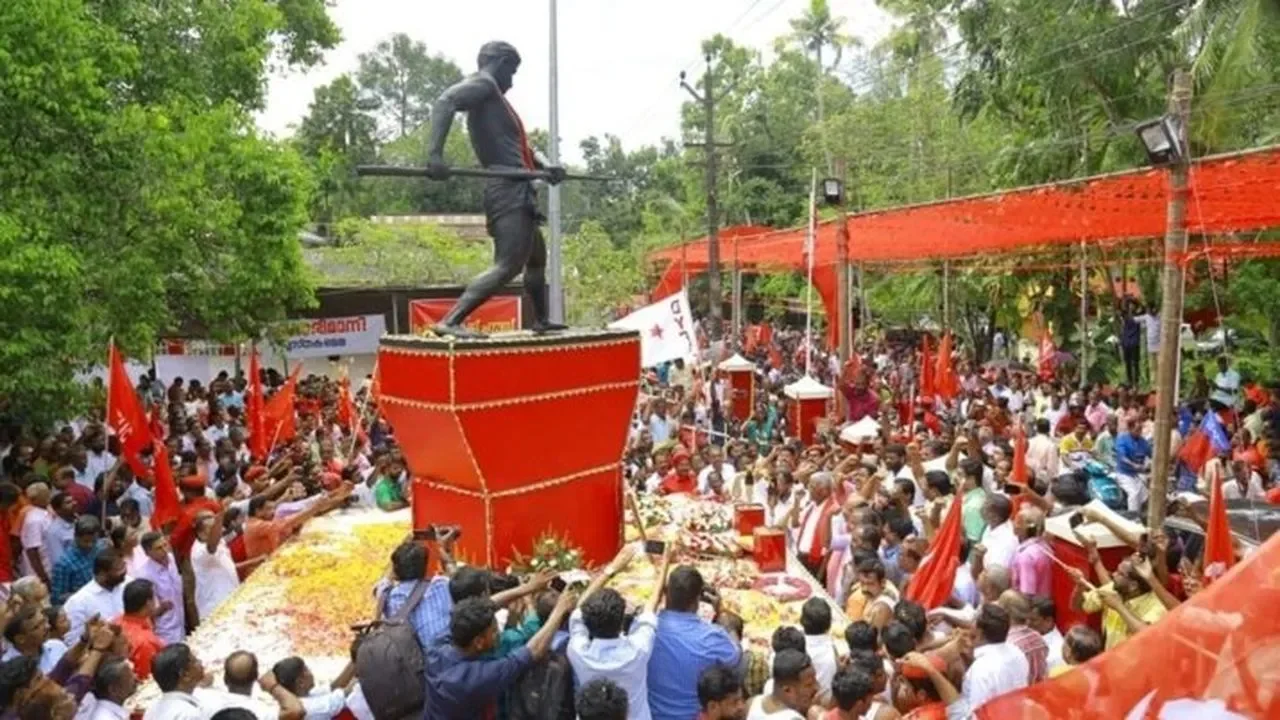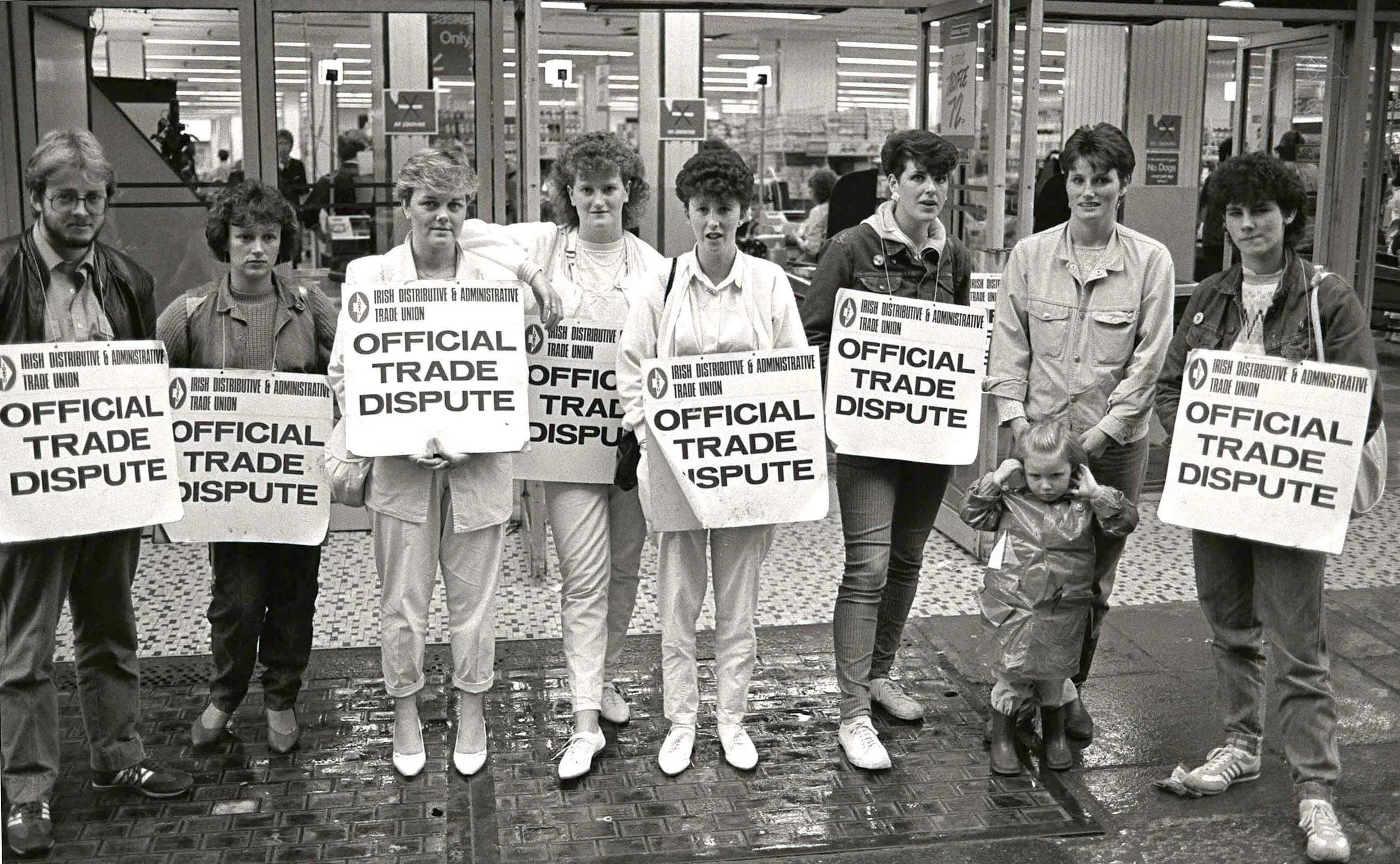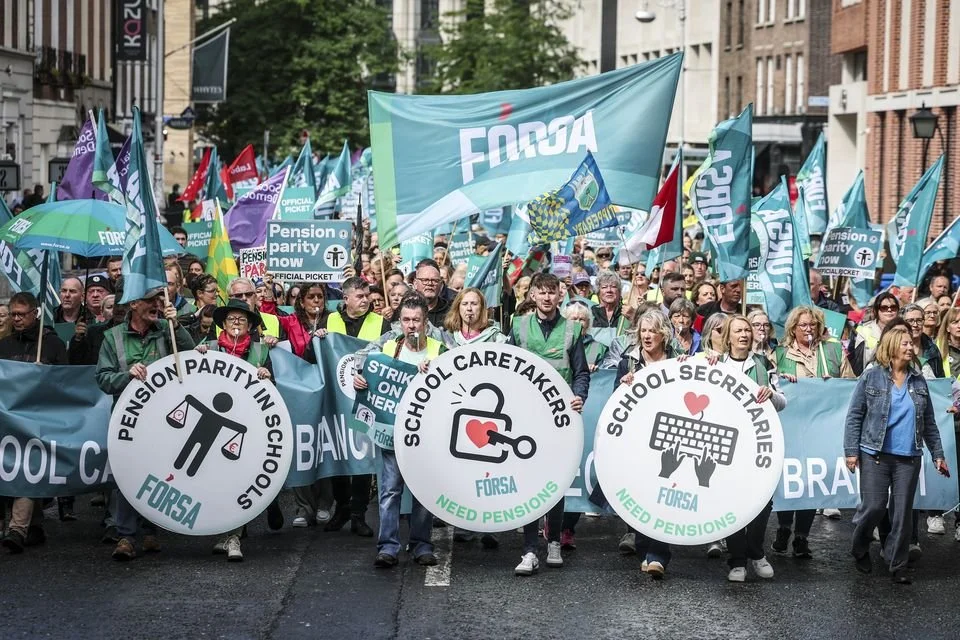Workers Will Win: Irish Congress of Trade Unions’ Stand for Palestine
Irish Congress of Trade Unions’ Support for the Dunnes Stores Strikers. Source: FÓRSA
On September 15th, 2025, Owen Reidy, General Secretary of the Irish Congress of Trade Unions (ICTU), made the following statement:
“While Ireland has made diplomatic efforts within the EU, the failure to implement real sanctions means some trade union members fear being complicit in Israel’s violence. We would not be surprised if some of these develop into flashpoints of conscientious objection by some workers. As a movement, we are clear: we will not be found wanting in protecting our members where an employer seeks to discipline or dismiss a worker in such circumstances.”
Pro-Palestine March in Newcastle. Source: David McAllister
I came across this statement days later, at a rally outside Leinster House. Speakers lauded the importance of workers in historical humanitarian struggles, and celebrated Mr Reidy’s (and the ICTU’s) promise of support for those who may put their livelihood on the line both in protestation for, and solidarity with, those suffering in Gaza.
Since the origin of trade unions, social movements have benefited from both union support and the employment of labour techniques. As students, as tenants, as free and equal humans, we owe much to their organised efforts. They piloted the boycotts, pickets, and public rallies that we have used in efforts to enhance our rights.
Memphis Sanitation Workers Strike. Sources: Britannica, Affiliate
1968, Memphis, Tennessee. Two sanitation workers, Echol Cole and Robert Walker, were crushed to death by a malfunctioning truck. In response to their deaths, and in reaction to racist treatment, more than 1100 workers went on strike for better wages, conditions and safety. They were organised by the American Federation of State, County and Municipal Employees (AFSCME).
Within a month, local high school and college students were participating alongside workers in daily marches. Martin Luther King Jr.'s last speech was delivered on April 3, 1968, at Mason Temple in Memphis, to the growing group of protestors. On 8 April, after his assassination, an estimated 42,000 people (with union leaders at the forefront) marched through Memphis in honour of King, demanding that the council grant the union’s requests. Their protests resulted in a victory for the sanitation workers, and the council ceded to their demands
.

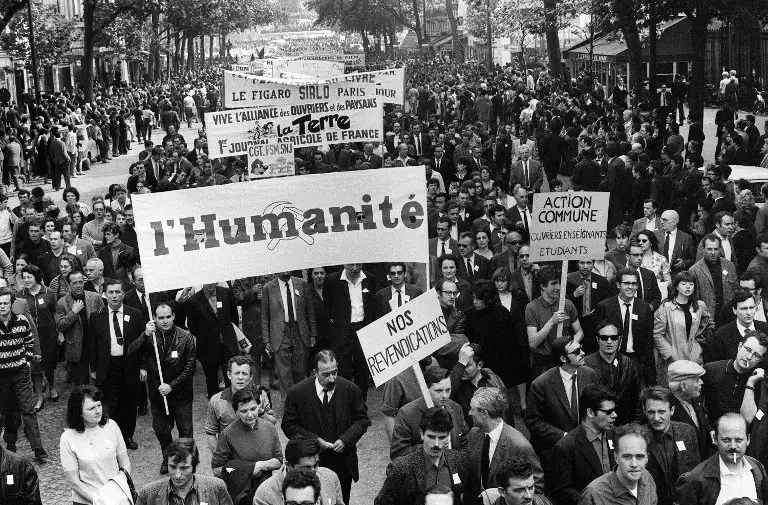
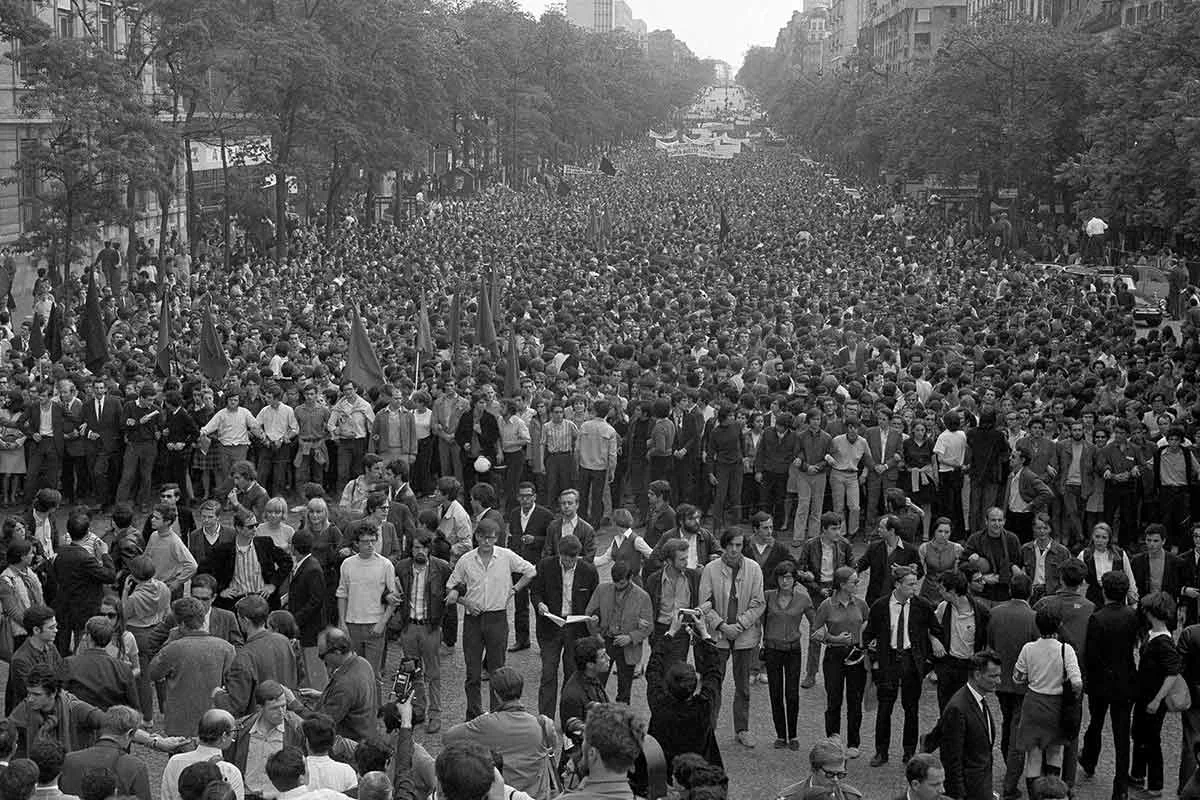
French Student Strikes. Source: Bruno Barbey, AFP, Associated Press
1968, France. Students dissatisfied with the bourgeois university system and governing "police state,” and workers facing poor conditions and pay, set out to demand change. The resulting wave of strikes involved over 10 million workers, immobilising France. While students initiated the protests, it was the mass workers’ movement that turned it into one of the largest general strikes in history.
Vietnam War Protests. Source: Stuart Kiehl
1969, Washington, DC. After President Richard Nixon continued to expand the Vietnam conflict, anti-war groups banded with liberal trade union leaders to protest further U.S. involvement in Southeast Asia. The Unions’ participation bolstered what had previously been seen as a minority group of dissidents. Early in Nixon’s second term, he terminated U.S. involvement in Vietnam and brought home the thousands of troops deployed there.
Battle of Cable Street. Source: ullstein bild Dtl.
1936, London. The Battle of Cable Street took place after more than 50,000 trade union members, British Jews, Irish Dock workers and a huge East End community gathered to block a fascist march to Whitechapel. 3,000 fascists gathered close to the Tower of London, with 7,000 police as protection. The anti-fascist group, led by members of the labour movement and connected by working-class background, community, and a fierce rejection of fascist beliefs, managed to stop the fascist march, and the battle is celebrated as a win against right-wing extremism.
Memorial of 1946 uprising. Source: TheSouthFirst
1946, India. In the 1940s, the All India Trade Union Congress (ATTUC) helped mobilise workers against colonial exploitation. One of the seminal uprisings began in October 1946, led by the ATTUC. Workers and small farmers stormed police stations, blocked roads, and established parallel administrative units. This event marked a landmark working-class uprising in South India, sparking a wave of labour activism nationwide against feudal injustices and industrial exploitation.
Dunnes Stores Strikers. Source: Derek Speirs
1984, Dublin. Closer to home, we have the famous (for good reason) Dunnes Stores strikers.
The strike began following the Irish Distributive and Administrative Trade Union (IDATU)’s directive that workers not handle South African goods due to the prevailing apartheid regime. On the 19th of July, ten Dunnes Stores workers followed this directive, and when reprimanded, went on strike. The strike lasted two years and nine months, and displayed the women’s unwavering dedication and courage. Their refusal to surrender led to a massive alteration in Government policy, and in 1987, Ireland became the first Western European State to ban South African imports.
2025 School secretaries strike. Source: Conor McCabe
These examples evidence the efficacy of union involvement in social struggles and the collaboration and community that their activism generates. Students were inspired by union members during the Memphis strikes, union workers bolstered support for students and anti-war groups during the Vietnam War and the 1968 Paris protests. They created a community against hate during the Battle of Cable Street, and lit the fire beneath the Indian fight against colonialism.
Union workers are the backbone of a smoothly operating society. When they refuse to be complicit in an unfair system, that system grinds to a halt.
We have, to some extent, allowed ourselves too much comfort during an ongoing genocide. While we may sympathise and shake our heads, or don ourselves with signs of solidarity, we have not been inconvenienced to the point of change. In the face of a terror that keeps advancing, sometimes the world needs to stop in order to move forward in the right direction. Statements of solidarity can only go so far. For concrete action, the state must be shocked, taken aback, stopped in its tracks. You have to cause discomfort. You have to be a nuisance. The above examples are a testament to the efficacy and importance of this. When organised labour stops, the nation breaks down. The Irish Congress of Trade Unions has taken an incredible step towards protecting strikers who stand up by sitting out. I hope that if workers take action, they are met with the same community they were afforded in years gone by. Ní neart go cur le chéile.






